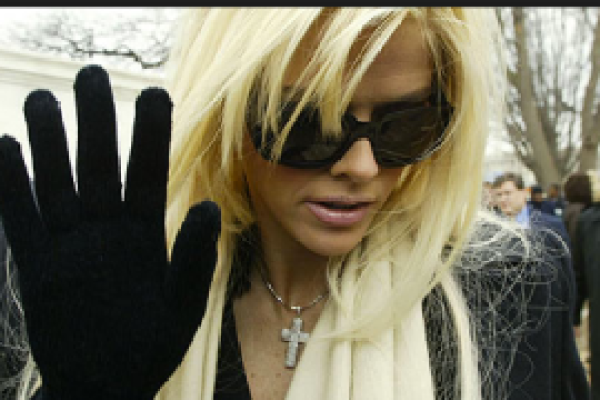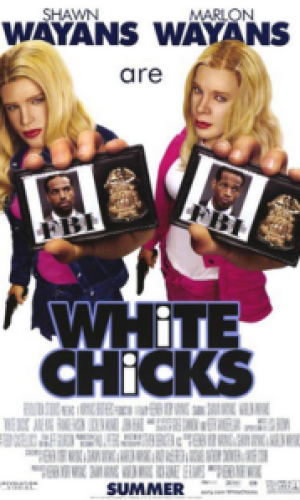Some of you may have rolled your eyes or even let a scoff exit your mouth upon seeing the title of this article. And such a reaction is telling of how little white girls are taken into consideration when it comes to having “real” problems. But, in fact, our problems are manifold and extensive, the foremost among them being consistently viewed as frivolous. What is “the plight of the white girl” exactly? It’s a blend of enduring racism, disinterest and objectification. It is a need to overcompensate in order to be seen merely as a regular person. While many people assume that white girls probably have it the easiest out of everyone, they are among the great sufferers of persecution, both witting and unwitting.
Although I have always been aware of this distinct brand of well, almost disdain, toward white girls, it became truly salient for me one night as I was riding my bike home past the projects. Two men were walking past me in the crosswalk and one of them shouted, “God bless you white girl!” The man was black. If you’ll notice, I initially didn’t mention his color, because it shouldn’t have to matter. But being addressed as “white girl” is rife with deliberate belittlement. And so that’s why I find it pertinent to mention that this man was black, because, had I chosen to respond with, “Thanks black guy!”, it would most assuredly have been taken as racism. But a girl is not just a girl. She’s a white girl. It’s very important to people (especially men) to make the distinction.

The reason for highlighting a white girl’s ethnicity (or lack thereof) is to, in part, diminish her capabilities. After all, how could a white girl do or say anything that isn’t superficial? Scores of famous women have played into this stereotype to their advantage, chief among them Paris Hilton and Anna Nicole Smith. Whether these two are purposefully playing up their quality of vacuousness is arbitrary. However, one thing that is clear is that they use (or in Smith’s case, used) their “stupidity” to their benefit. People are more comfortable with you when they think you don’t pose a threat, when they assume that you couldn’t possibly usurp them on an intellectual level.
Conversely, white women who don’t wield the stereotype of themselves to get what they want are frequently seen as “antisocial,” “militant” or “lesbian.” These are words that also denounce and disparage a white girl for simply trying to be herself, to not have to put on some sort of mask as a means to reveal her thoughts (yes, white girls have thoughts). There is no other race of women that the masses are as comfortable compartmentalizing and generalizing; it’s completely acceptable to poke fun at our so-called ridiculousness.
Another term both men and women are at ease with calling white girls is “slut.” Whether you’re chaste or promiscuous, you will invariably be called this as a white girl. It doesn’t matter what your sex like actually consists of, “slut” is the word they use to go for your jugular, as it is also a means to ridicule and deride you, therefore rendering you automatically inadequate as a person. But you must remember, you’re not a person. You’re a white girl.
Perhaps the white girl’s greatest plight is the congenital need to compare herself to other white girls. She is in constant and unnecessary competition—over looks, men, jobs, life itself. She has been told that her appearance is all she has to offer, and so, she focuses on it obsessively. Makeup, hair, clothes: They’re all facets of consumerism we buy into to improve self-worth. Who are we if we’re not attractive? What else could we possibly have to offer? This is an issue that plagues the white girl very specifically. Black women, Latino women, Asian women—they all possess their own breed of self-assurance. The white girl, on the other hand, is notorious for her insecurity, her need to please and to obtain approval. She doesn’t want to be this way, but it’s ingrained within her like something she can’t control or cast out. Perhaps only oppressed Arabic women undergo a similar state of being—which may come across, on the surface, as insane, as most truths do.
The saddest aspect about white girls focusing so heavily on aesthetics is that most people can’t even differentiate between them. If you put five blonde girls in a lineup, would you be able to decipher them? No. They, too, must endure racism, but it is acceptable because they are white; others have earned the right to behave in a prejudiced manner toward them, have they not? They’ve never had to put up with the strife that other races have, therefore it’s okay to criticize them—in fact they deserve it. If they choose to become a victim of their own histrionic nature, so be it. That’s the fate they’ve allowed themselves to play into.
It’s bad enough to be distinguished as, to borrow a phrase from Morrissey, “half a person” simply for being a woman. The white woman, though, is barely there at all. She’s mutable. You can make her into whatever you want her to be. But that’s okay, men buy you things, so surely you can at least give them the courtesy of being who they want you to be. I once had a boyfriend who, in response to me telling him he should try to work on being a better person, scoffed, “That’s easy for you to say. You’re a woman, you just get to take.” This is exactly what people think of white girls: There is nothing to them beyond being an attractive parasite. In popular culture (e.g. the self-hating white people at Buzzfeed who makes lists like “28 Things Only Teenage White Girls Will Understand”, White Chicks, The Simple Life, etc.), it’s all a lauded and encouraged joke to turn white women into fodder for parody. If this was how men or any other race were treated on a daily basis, I would say, yeah sure, it’s fine. But it’s just not that way. Even frat boys have more depth given to them in the media (see: American Horror Story: Coven). Then again, I suppose if white girls were portrayed in a favorable light, there would be nothing left to make fun of without worrying about being politically correct.



























